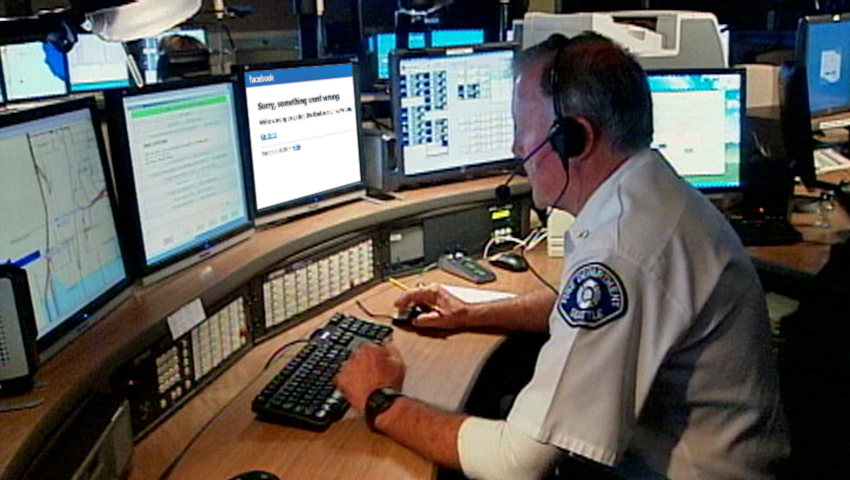911, what's your emergency? "Help! Facebook is down!"
 On Friday, a Facebook outage lasting one hour, prompted LAPD Sgt. Burton Brink to post this tweet:
On Friday, a Facebook outage lasting one hour, prompted LAPD Sgt. Burton Brink to post this tweet:
“Facebook is not a Law Enforcement issue, please don’t call us about it being down, we don’t know when FB will be back up!”
The message caused some confusion, especially to tabloid news outlets, blogs and virtually every news source looking for an outrageous scoop, as rumors of a barrage of 911 calls from concerned citizens in the LA area demanding police to do something about restoring the service, spread like wildfire.
We took it upon ourselves to investigate the issue and our findings confirm that the outage did not occur April 1st 2014, and also, no law enforcement officers in active duty, are currently engaged in emergency support efforts to distraught Facebook users.
Also: no one called 911 about Facebook being down, as confirmed by this tweet from @911ladp:
“For the record: No 1 called 911 about #Facebook. That was a statement in regards to the Q&A, we're doing & the questions we are answering ;)”
Facebook issues, however, do not seem to be the motivator for Sgt. Brink to fear LA residents may jam emergency service lines:
“Yes, we get calls all the time like this, cable TV, all sorts of things not working, they think we control.”
On a serious note:
As easy as it is to laugh at anyone calling emergency services about a social media outage, there are indicators to a trend in which social networks have the potential to reach utility status and be considered essential vehicles of communication in a time of emergency.
Basic Internet services like e-mail and instant messaging have proven life-saving when all other means of communications are unavailable, especially during a natural disaster or lock-down scenario resulting from terrorist or criminal activities.
In most US cities, wireless internet hotspots are in greater number than regular 3G or 4G coverage, and far more reliable in an emergency, than phone service itself, which can be jammed, or cut off by a wide range of external factors.
Having said that, it’s also important to keep in mind, that social networking services, as they exist today, are still a responsibility of the companies that own and operate them, and certainly not something law enforcement should be called to investigate on.